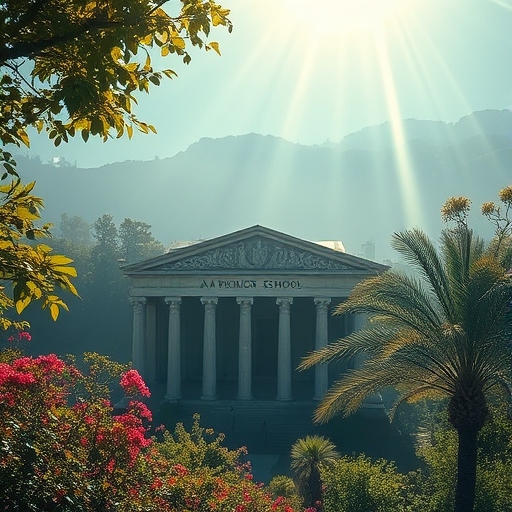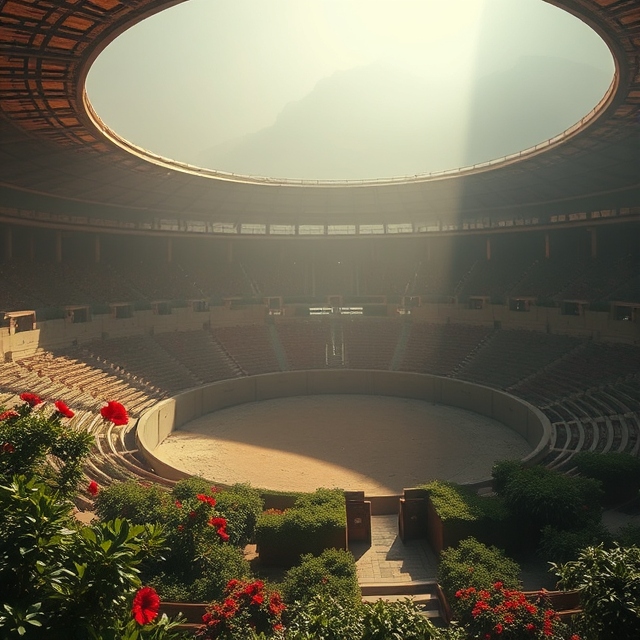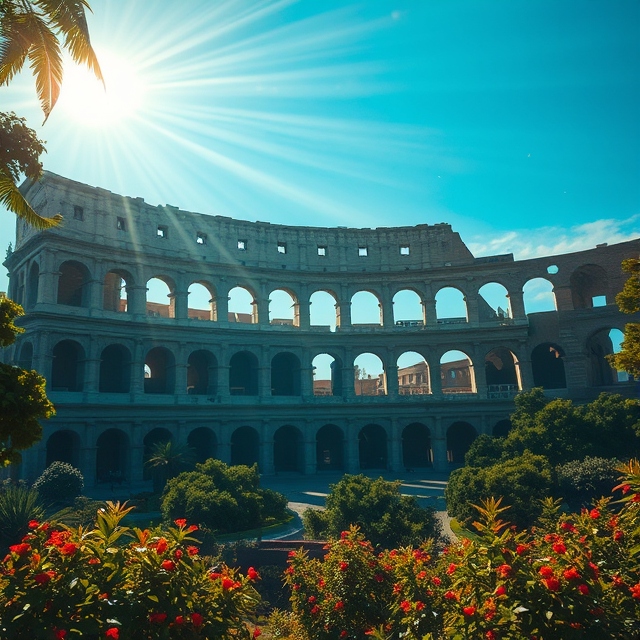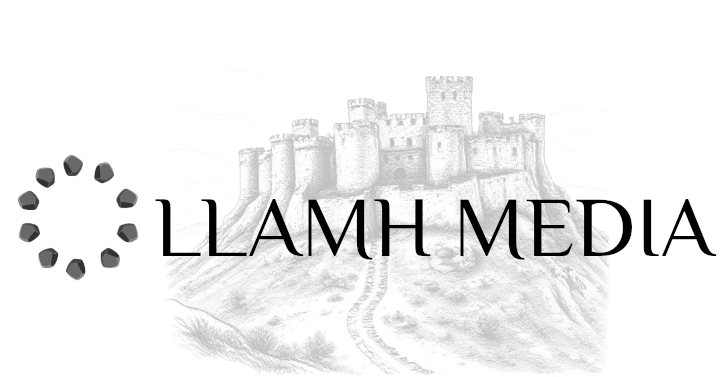A palaestra was a central institution in ancient Greek and Roman society, serving as a dedicated space for physical training, education and social interaction. These facilities, often location near gymnasiums, were essential to the classical world’s emphasis on cultivating a balanced mind and body.
The term palaestra originates from the Greek word palaio, meaning “to wrestle,” reflecting the space’s primary function as a wrestling school. However, its role extended beyond athletics. In Greek culture, the palaestra was a hub for training in wrestling, boxing, and pankration, which was a no-holds-barred combat sport. These activities were not merely for entertainment or competition; they were integral to the paideia (holistic education), shaping young men into disciplined, virtuous citizens capable of contributing to the polis.
Unlike modern gyms, palaestrae also emphasised intellectual and social development. They were gathering places where philosophy, poetry and civic issues were often discussed. This tradition continued into the Roman era. In these grand settings, physical and intellectual rejuvenation went hand in hand.

Architecturally, palaestrae were rectangular courtyards surrounded by colonnades, providing open spaces for training. Also, within these colonnades were rooms for instruction, baths and storage.
Interestingly the palaestra’s legacy highlights how ancient societies viewed physical activity as intertwined with intellectual and moral excellence. We can see how this understanding differs from the modern education system. However, the idea of a palaestra appeals to me in a holistic sense. Imagine a University that is centred around cultivating physical AND academic excellence.
Wrestling
In the cultures of ancient Greece and Rome, wrestling served as both a physical discipline and a symbol of broader societal values. In the Greco-Roman world, wrestling was rooted in mythology, philosophy and civic ideals by the populace. It was far more than a sport. It was a means to cultivate strength, discipline and virtue.
Greek Wrestling: A Path to Excellence
In ancient Greece, wrestling (pale) was a cornerstone of the paideia, the holistic education system. (Follow the link to learn more about paideia in one of my other articles). It was practiced in the palaestra. Wrestling demands skill, strategy and mental focus. Therefore, reflecting the Greek ideal of harmony between mind and body. The sport also had deep cultural and mythological significance. Heroes like Heracles (Hercules) and Theseus were celebrated wrestlers, embodying strength and cunning. Wrestling was a key event in the ancient Olympic Games, which symbolised unity and competition among Greek city-states. Winning a match was not only a personal triumph but also a civic honour, reinforcing ideals of discipline and excellence.

Roman Wrestling: Strength and Entertainment
The Romans adopted wrestling from the Greeks but adapted it to their own values. In the Roman Republic, wrestling was part of military training, preparing soldiers for hand-to-hand combat. The physical rigour and resilience developed through wrestling aligned with Roman ideals of duty and strength.
In the imperial era, wrestling also became a popular form of entertainment in public games and spectacles. While it retained its athletic nature, it was often more theatrical and violent, designed to captivate audiences.
A Shared Legacy
For both cultures, wrestling symbolised more than physical prowess. It represented human struggle, discipline and the pursuit of excellence. The enduring appeal of wrestling today echoes its ancient role as a means of self-improvement and a reflection of cultural values.
The Pursuit of Knowledge in the Palaestra
As mentioned previously, the palaestra of ancient Greece was not just a training ground for physical prowess but also a hub for intellectual and moral education. While its primary focus was on activities like wrestling, boxing and pankration, the palaestra served as a space where the pursuit of knowledge and the cultivation of character flourished alongside physical discipline.
Physical and Intellectual Balance
The ancient Greeks believed in the ideal of kalogathia, a harmonious balance of physical beauty and moral virtue. The palaestra was central to this concept, offering a holistic education that integrated the development of the body with that of the mind and soul. Trainers and instructors, known as paidotribes and sophists, guided young men not only in athletic techniques but also in moral reasoning, philosophy and rhetoric.
A Space for Dialogue and Philosophy
Palaestrae were designed to foster more than athleticism. Between training sessions, young men and their instructors would engage in discussions on topics ranging from civic responsibility to ethics and the nature of virtue. These conversations were influences of philosophers such as Socrates and Plato, who emphasised that physical training was incomplete without the cultivation of wisdom and self-control.
The intellectual aspect of the palaestra aligned with the broader Greek pursuit of arete. By blending physical and mental exercises, the palaestra embodied the belief that true education prepared individuals for both personal fulfilment and service to the polis.
The Role of Myth and Literature
The pursuit of knowledge in the palaestra also extended to the arts and mythology. Trainers would recount the heroic tales of figures like Heracles and Theseus, whose strength and wisdom were seen as models of excellence. These stories inspired students to aspire to greatness not only in competition but in their lives as citizens and leaders.
Legacy of the Palaestra
The palaestra’s integration of physical training and intellectual development highlights the ancient Greek commitment to a well-rounded education. This approach laid the groundwork for later educational systems that emphasise the interplay of body, mind, and soul. In a modern world often focused on specialisation, the palaestra serves as a timeless reminder of the value of pursuing knowledge alongside physical and moral growth.

Where Wrestling meets Philosophy
Classical philosophers often emphasised the importance of physical excellence as integral to intellectual and philosophical development. For the ancients, cultivating the body was inseparable from cultivating the mind, embodying the ideal of kalokagathia.
Plato, a wrestling enthusiast himself, believed that physical training, played a crucial role in shaping one’s character and intellect. In his dialogue The Republic, he argued for a balanced education in both gymnastics and music, stating…
“Excessive care of bodily exercise may produce a certain toughness, but without culture, it turns the mind brutish; excessive devotion to culture makes the mind feeble. The best guardian is one who is temperate in both.”
Plato
Therefore, wrestling as a sport demanding strategy and discipline, helped cultivate resilience and mental sharpness, qualities essential for philosophy.
Socrates, too, is said to have praised the virtues gained through physical training. Xenophon recounts in Memorabilia that Socrates often encouraged his students to maintain their physical fitness, reasoning that a strong body supports a sharp mind.
“No citizen has a right to be an amateur in the matter of physical training; it is a shame for a man to grow old without seeing the beauty and strength of which his body is capable.”
Socrates
Aristotle also underscored the connection between physical discipline and intellectual rigour. In Politics, he noted, “The body is the servant of the soul, and the soul rules the body”. Thus, physical training not only prepared one for civic and personal duties but also honed the discipline required for philosophical inquiry.
Wrestling, in particular, demanded strategy, adaptability and perseverance. All of these mirroring the mental challenges of philosophy. For these thinkers, physical excellence was not a distraction from intellectual pursuits but a foundational element, reinforcing discipline, endurance and the pursuit of truth.

